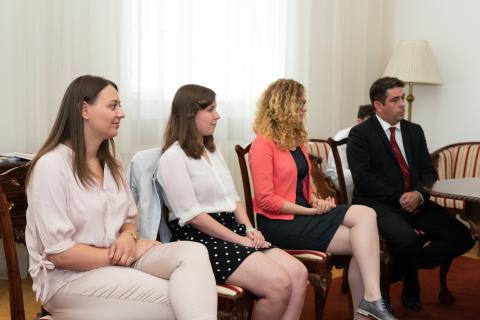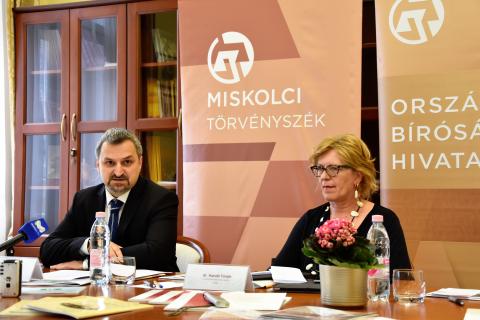Részletes keresés
The website of the National Office for the Judiciary (NOJ) received a special award in the government category at the Website of the Year contest.
In the THEMIS competition organized by the European Judicial Training Network (EJTN), the Hungarian team has never achieved such a big success before. The trio made up of dr. Franciska Zsófia Gyuranecz, dr. Dorottya Papp and dr. Bernadett Krausz trainee judges won semi-final D in Sofia, Bulgaria, and received a special prize for the best visual performance. The team tutored by judge dr. Bálint Kovács wrote their paper on judicial ethics and professional conduct dealing with the relation between
The National Office for the Judiciary (NOJ) has invited entries for a contest for amateur photographers. Those who are interested in taking photos of court buildings, court work, everyday life or courtroom events are welcome to apply.
Six years after the introduction of the new court administration model in 2011, dr. Csaba Virág has come out with a comprehensive analysis on the results of the new system and its performance.
I have always kept the laws, I am ready for any inspection because it will only verify that I am performing my tasks with the moral decency it requires – claimed dr. Tünde Handó, President of the National Office for the Judiciary (NOJ) at the general meeting of judges reacting to the actions taken by the National Judicial Council (NJC). On Wednesday the NJC decided to turn to the Hungarian National Assembly to initiate the removal of the President of the NOJ from office.




 The Code of Administrative Court Procedure in force as from 1 January 2018 has brought about significant changes in the rules of procedure, with the range of cases to be adjudged in public administration lawsuits considerably extended.
The Code of Administrative Court Procedure in force as from 1 January 2018 has brought about significant changes in the rules of procedure, with the range of cases to be adjudged in public administration lawsuits considerably extended.